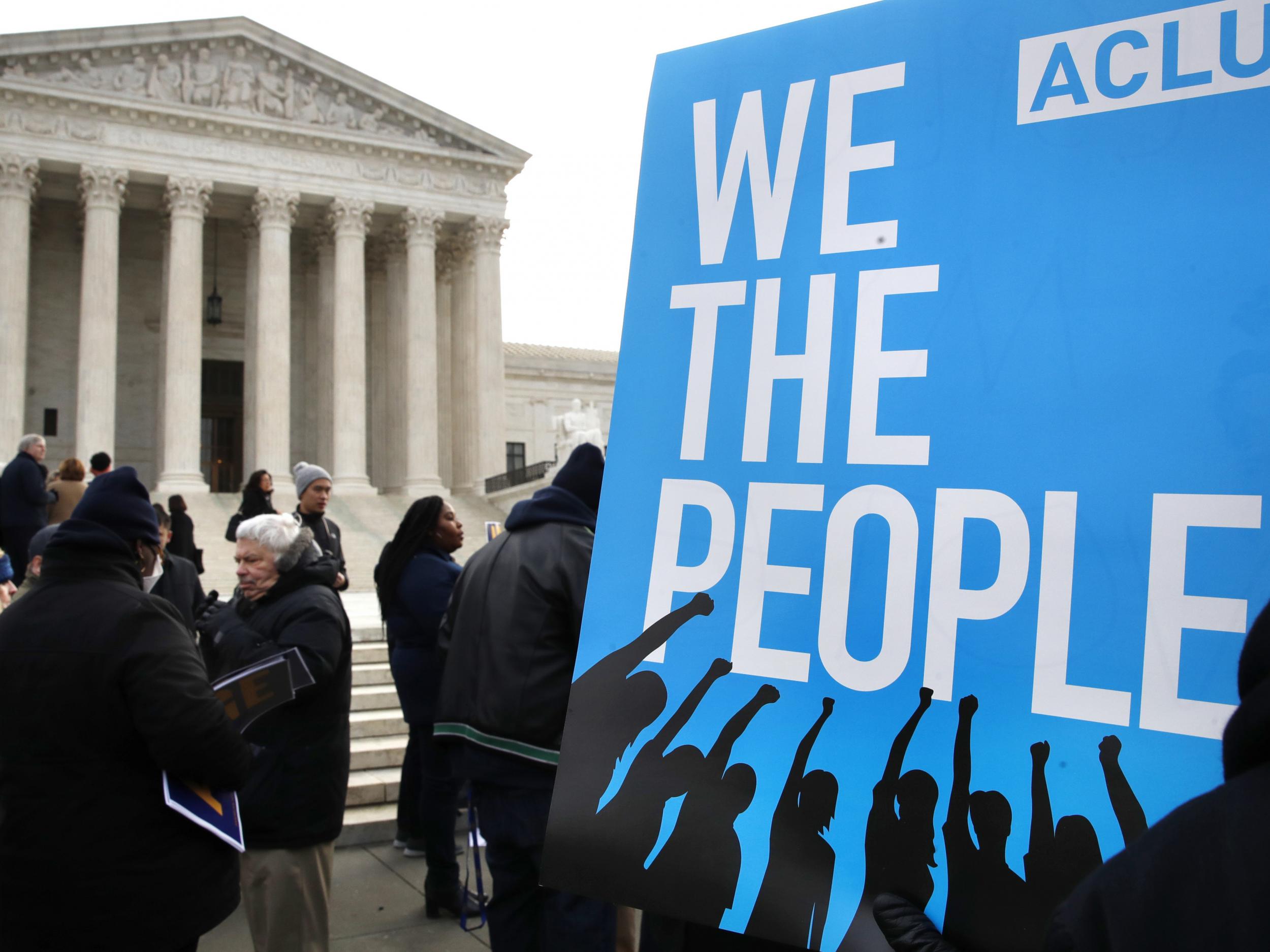Trump celebrates Supreme Court decision to allow thousands of voters to be removed from electoral rolls
Opponents of law say intention is to purge people from the rolls, particularly minorities and the poor, who tend to vote Democratic

Donald Trump has celebrated a Supreme Court decision that clears the way for thousands of voters to be purged from the electoral rolls.
The president welcomed the “great news” that senior judges ruled the state of Ohio’s aggressive voter registration policy did not breach federal law.
The battleground state begins removing citizens from its rolls if they have not voted in the last two years.
Opponents of the law say the intention is to purge people from the rolls, particularly minorities and the poor, who tend to vote Democratic.
They argued in court that the policy breached the 1993 National Voter Registration Act, a federal law prohibiting states from purging voters from their rolls if they fail to cast a ballot.
But Supreme Court judges voted 5-4 to uphold the policy, in a decision split on liberal-conservative lines.
Following the ruling, Mr Trump tweeted: “Just won big Supreme Court decision on Voting! Great News!”
The court ruling comes ahead of mid-term elections in a key state that has oscillated between Republican and Democrats.
Ohio secretary of state Jon Husted, a Republican, said the judges’ decision was “a victory for election integrity”.
“This decision is validation of Ohio’s efforts to clean up the voter rolls and now with the blessing nation’s highest court, it can serve as a model for other states to use,” he added.
In most states, the process of removing voters from the rolls begins only after they have missed two or more federal elections.
In Ohio, the state election board automatically sends notices to registered voters who have not voted in the last two years. If they fail to respond to the notice, and does not cast a ballot for the next two years, they are automatically expunged from the rolls.
The policy disproportionately purges African-Americans and other minorities, who tend to vote less in mid-term elections compared to white people.
According to Reuters, at least 144,000 people were removed from the rolls under the policy in recent years.
The state said the policy was necessary to keep its voter rolls accurate and up-to-date. It maintains voters given plenty of opportunities to keep their active status and that the rules adhere to federal law requiring states to maintain accurate voter records.
But Larry Harmon – an Ohio-based software engineer – disagreed. The US Navy veteran voted in the 2004 and 2008 presidential elections, but not in the 2012 presidential election or the 2010 and 2014 mid-terms.
When Mr Harmon tried to vote against a state ballot initiative to legalise marijuana in 2015, he found he had been kicked off the state voter rolls. The next year, he joined the suit against Mr Husted in an attempt to end the policy.
In 2016, the US Court of Appeals for the Sixth Circuit in Cincinnati ruled in Mr Harmon’s favour. The appeals court said Ohio’s rule violated the Voter Registration Act by using his failure to vote as a “trigger” for sending the change-of-address notice.
According to the American Civil Liberties Union (ACLU), the policy would have kept more than 7,500 people from voting in the November 2016 election had appeals court not overturned it.
Ohio then took the case to the Supreme Court, where judges voted to uphold the policy on Monday.
The ACLU called the decision a “a setback for voting rights”.
Democrats and voting rights groups have expressed concerns that other states may be emboldened by the ruling and adopt more aggressive tactics to kick voters off the rolls.
Oklahoma, Georgia, Montana, Oregon, Pennsylvania and West Virginia all have have laws similar to those of Ohio that are not enforced so strictly.
Join our commenting forum
Join thought-provoking conversations, follow other Independent readers and see their replies
Comments
Bookmark popover
Removed from bookmarks